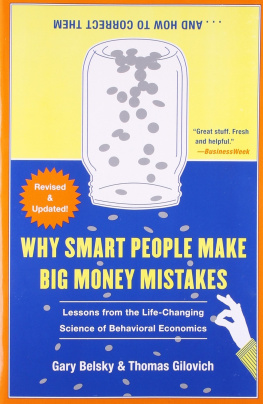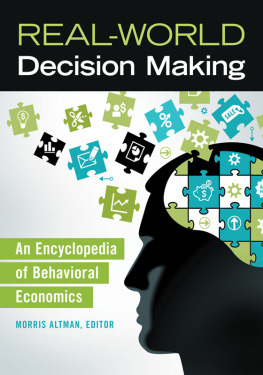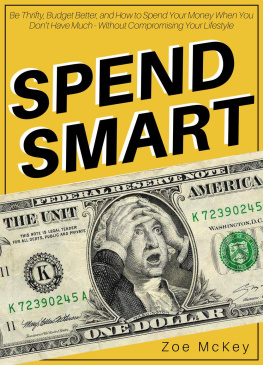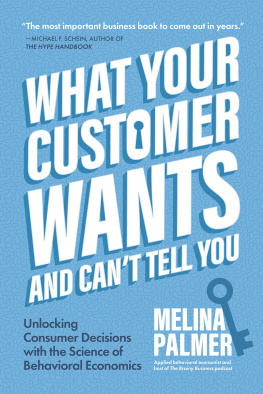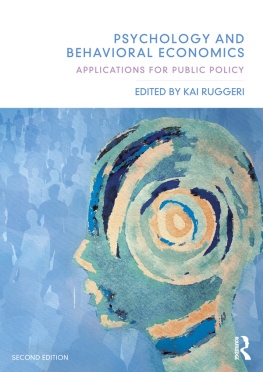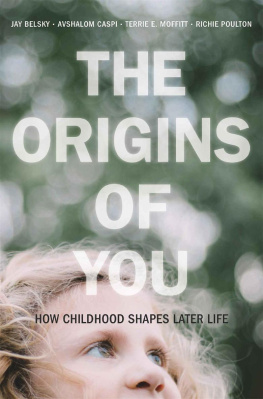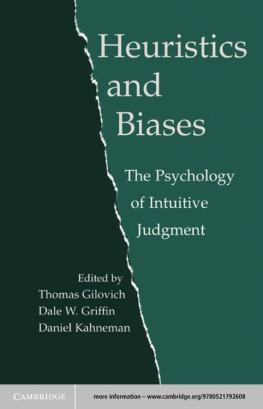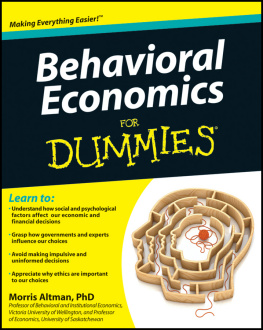
Also by Thomas Gilovich
How We Know What Isnt So: The Fallibility of Human Reason in Everyday Life
Heuristics and Biases: The Psychology of Intuitive Judgment(with Dale Griffin and Daniel Kahneman)
Social Psychology (with Dacher Keltner and Richard Nisbett)
Also by Gary Belsky
23 Ways to Get to First Base: The ESPN Uncyclopedia (with Neil Fine)
Should You Really Be a Lawyer? The Guide to Smart Career Choices Before, During & After Law School (with Deborah Schneider)
ESPN The Magazine Presents Answer Guy: Extinguishing the Burning Questions of Sports with the Water Bucket of Truth (with Brendan OConnor and Neil Fine)
On Second Thought 365 of the Worst Promises, Predictions, and Pronouncements Ever Made
Why Smart People Make
Big Money Mistakes
and How To Correct Them

Lessons from the Life-Changing
Science of Behavioral Economics

GARY BELSKY & THOMAS GILOVICH


Simon & Schuster
1230 Avenue of the Americas
New York, NY 10020
www.SimonandSchuster.com
Copyright 1999, 2009 by Gary Belsky and Thomas Gilovich
All rights reserved, including the right to reproduce this book or portions thereof in any form whatsoever. For information address Simon & Schuster Subsidiary Rights Department, 1230 Avenue of the Americas, New York, NY 10020.
This publication contains the opinions and ideas of its author. It is sold with the understanding that neither the author nor the publisher is engaged in rendering legal, tax, investment, insurance, financial, accounting, or other professional advice or services. If the reader requires such advice or services, a competent professional should be consulted. Relevant laws vary from state to state. The strategies outlined in this book may not be suitable for every individual, and are not guaranteed or warranted to produce any particular results.
No warranty is made with respect to the accuracy or completeness of the information contained herein, and both the author and the publisher specifically disclaim any responsibility for any liability, loss or risk, personal or otherwise, which is incurred as a consequence, directly or indirectly, of the use and application of any of the contents of this book.
This Simon & Schuster trade paperback edition January 2010
S IMON & S CHUSTER and colophon are registered trademarks of Simon & Schuster, Inc.
For information about special discounts for bulk purchases, please contact Simon & Schuster Special Sales at 1-866-506-1949 or business@simonandschuster.com.
The Simon & Schuster Speakers Bureau can bring authors to your live event. For more information or to book an event contact the Simon & Schuster Speakers Bureau at 1-866-248-3049 or visit our website at www.simonspeakers.com .
Designed by Jaime Putorti
Manufactured in the United States of America
10 9 8 7 6 5 4 3 2 1
Library of Congress Cataloging-in-Publication Data
Belsky, Gary.
Why smart people make big money mistakes and how to correct them: lessons from the life-changing science of behavioral economics / by Gary Belsky & Thomas Gilovich.
p. cm.
1. Finance, PersonalPsychological aspects 2. Finance, Personal
Decision making 3. InvestmentsDecision making. 4. Consumers
Attitudes. 5. EconomicsPsychological aspects. I. Gilovich, Thomas. II. Title.
HG179.B375 2009
332.024dc22 2009041637
ISBN 978-1-4391-6336-8
ISBN 978-1-4391-6974-2 (ebook)
G.B.:
To my mom, Irene Chervitz Belsky, and to my dad,
Morris Belsky, of honored memory
T.G.:
To Karen, Ilana, and Rebecca
CONTENTS
INTRODUCTION:
WHY SMART PEOPLE MAKE BIG MONEY MISTAKES
An introduction to the life-changing science of behavioral economics.
How mental accounting can help you save, or cost you money.
How loss aversion and the sunk cost fallacy lead you to throw good money after bad.
How the status quo bias and the endowment effect make financial choices difficult.
Money illusion, bigness bias, and other ways that ignorance about math and probabilities can hurt you.
Why anchoring and the confirmation bias lead you to make important money decisions based on unimportant information.
Overconfidence and the price of thinking that you know more than you do.
Information cascades and the danger of relying too much on the financial moves of others.
The role of emotions in decision making: what we dont know about how we feel.
Principles to ponder and steps to take.
INTRODUCTION

WHY SMART PEOPLE MAKE
BIG MONEY MISTAKES
This is an optimistic book, written by a pair of realists. Optimistic, because this project rests on the belief that ordinary individuals can enhance lifes enjoyment by understandingand alteringthe way they deal with their money. Realistic, because your authors know that correcting money-related behavior is like tinkering with a golf swing or getting along better with in-laws: It may take a while, and for every fix theres a danger that youll create a new set of problems. Still, our purpose here is straightforward, and we are confident of its merits.
This remains true ten years after the first edition of our work was published, a decade during which this books underlying research received significant attention beyond academia. Over that same span of time, we witnessed what can safely be called a major upheaval in global financial markets and individuals personal finances. Both of these developments connect directly to our reasons for writingand now updatingthis book: We have always believed that by identifying the psychological causes behind many kinds of financial decisions, you can change your behavior in ways that will ultimately put more money in your pocket and help you keep more of what you have. Ten years on, many more people agree with us, and still more are interested in any kind of knowledge or advice that will assist them in navigating the treacherous waters of financial decision making. As it happens, we think we can help.
How do we plan to accomplish this feat? For starters, the insights and strategies we offer in this book arise from many wellsprings, not least our experiences as a psychologist and as a journalist specializing in personal finance. Were also spenders, savers, borrowers, and investors like you, with firsthand knowledge of the mistakes well be discussing. But underpinning most of this book is a field of research called behavioral economics, which has flourished in intellectual arenas for the better part of four decades and has recently become very trendy. We might even say hot, to the extent that anything having to do with economics can be called that. But regardless of what you might think about a subject once you learn that journalists and politicians have suddenly warmed to it, know this: Behavioral economics, which brings together tools and insights from economics and psychology, truly can explain why and how people make seemingly irrational or illogical decisions when they spend, invest, save, and borrow money.
Next page
